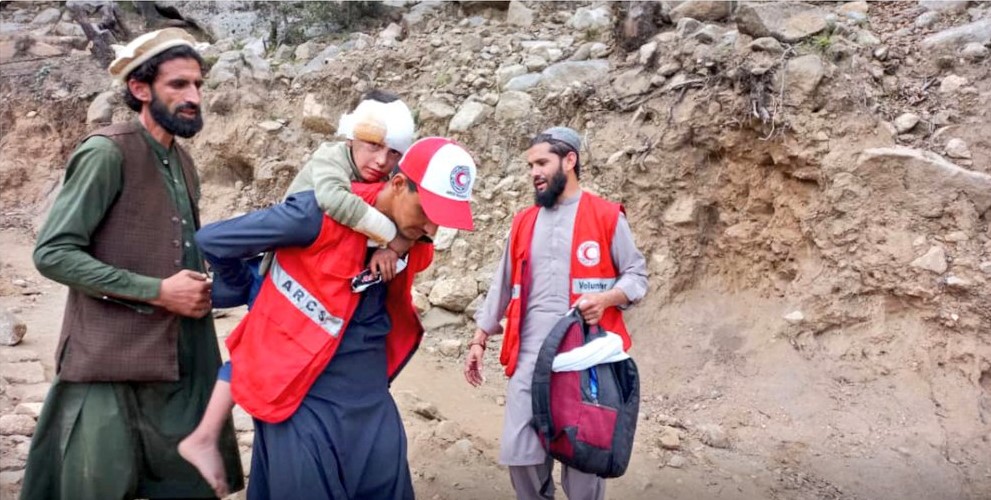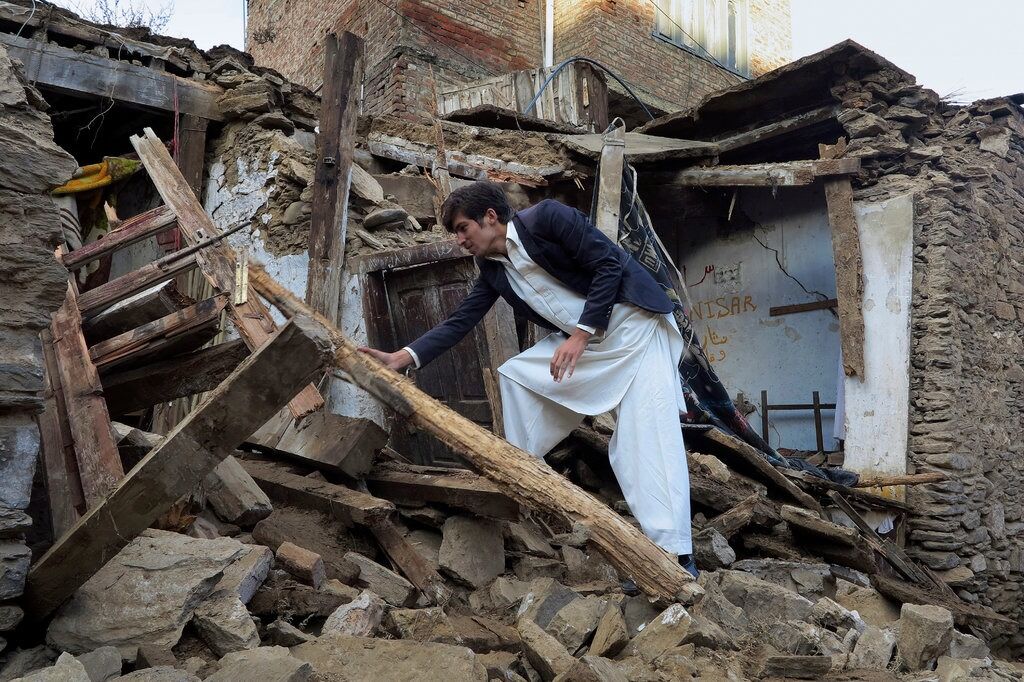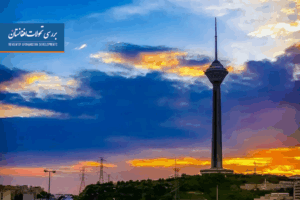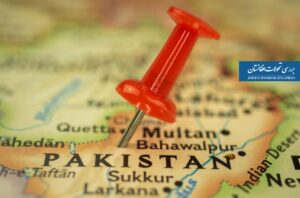Review of Afghanistan developments
A 6.2 magnitude earthquake hit eastern Afghanistan at midnight on Sunday, with its epicenter located in Kunar province. As reported by A
fghan officials, numerous villages in the province were entirely devastated, and by 1 p.m. on Monday, the death toll from the earthquake had risen to 800, with 2,800 individuals injured.
Considering the rural and precarious conditions of the earthquake-affected region, along with the occurrence of the quake at midnight when most individuals were asleep, it is probable that the death toll will increase. Local authorities have indicated that land access to numerous villages is obstructed, and the sole means of reaching the affected areas is via air, necessitating equipment and facilities that the Taliban administration does not possess.
The catastrophic earthquake strikes as Afghanistan confronts one of its most significant humanitarian crises in recent years. The influx of approximately 3 million Afghan refugees returning from Pakistan and Iran in the past few months has further burdened Afghanistan’s scarce resources and deteriorating infrastructure. The Taliban administration, which has been dealing with an economic crisis since assuming control, now faces an even more daunting task due to the earthquake: initially, it must transport and care for the injured, while also supplying water, food, and temporary housing for the victims of the quake, and subsequently, it must undertake the reconstruction of the affected regions.
Afghan officials have recognized the country’s limited capabilities and have promptly released statements formally seeking help from international organizations. This appeal for assistance indicates the severity of the disaster and highlights that the Afghan government cannot manage this crisis independently. Furthermore, previous experiences with earthquakes in the Paktika and Khost provinces have demonstrated that international support and the efforts of humanitarian organizations are crucial in preserving the lives of thousands impacted by the earthquake.
The role of people and social cooperation in helping earthquake victims
In times of such critical circumstances, local residents and aid organizations have consistently risen to the occasion to alleviate the suffering experienced by the victims. Due to the enduring tradition of mutual assistance in Afghanistan, even amidst poverty and deprivation, individuals have not hesitated to share their limited resources during crises and have eagerly come to the aid of their fellow citizens. Local reports suggest that individuals from nearby areas have arrived at the earthquake’s epicenters, actively searching for victims and potential survivors beneath the debris using basic tools, and are also involved in transporting the injured through challenging mountain routes.
Responsibility of international relief organizations
In light of the government’s and citizens’ efforts, the magnitude of the disaster and the severity of the damage inflicted by the Kunar earthquake necessitate prompt action from the international community. Afghanistan is unable to bear the weight of such a catastrophe independently right now. The urgent requirements of the earthquake survivors encompass temporary housing, food supplies, access to safe drinking water, medical care, and necessary medical equipment. In the longer term, the rebuilding of destroyed homes and infrastructure will demand significant investments and meticulous planning. In this context, the involvement of international organizations, including the Red Cross, the World Health Organization, the World Food Program, and particularly the United Nations, is crucial.

Afghanistan’s hope for neighboring countries
In the initial hours following the incident, neighboring nations including India, Iran, Pakistan, and China expressed their condolences, indicating their willingness to offer aid to the victims of the earthquake. Considering the unique circumstances surrounding the Taliban government, it appears that neighboring and regional nations will take the lead in delivering relief support to the earthquake-affected population of eastern Afghanistan. The Afghan government is also aware that, due to the stance of Western governments towards its administration, there is little expectation of assistance from these nations. As has been the case in the past, it will be the neighboring countries that extend their support to Afghanistan. Thus, it is anticipated that Afghanistan’s neighbors will, as they have historically done, respond to the pleas of the suffering people of Afghanistan and fulfill their crucial role through both immediate and long-term assistance.
The support provided by Afghanistan’s neighboring countries not only plays a crucial role in aiding the Afghan population during periods of crisis but also contributes to resolving the internal crisis in Afghanistan and averting large-scale migration.
Related articles
Water crisis in Kabul: causes and consequences
International restrictions and their impact on the general situation
Western governments, if they are truly dedicated to fundamental human rights principles, must refrain from using political justifications and hindrances to assist the impacted individuals in eastern Afghanistan. At this crucial juncture, thousands of Afghans urgently require aid. Distinguishing humanitarian needs from political agendas can facilitate prompt support for the Afghan populace. The global community must recognize that the earthquake’s victims consist of orphaned children and displaced families who lack influence over political choices and should not bear the consequences.
If the global community, adjacent nations, and international organizations fail to take prompt action, the humanitarian disaster stemming from the Kunar earthquake may escalate into a significant crisis that could claim the lives of thousands of rural women, men, and children. Meanwhile, the involvement of Afghanistan’s neighboring countries is more crucial than that of any other parties.

















